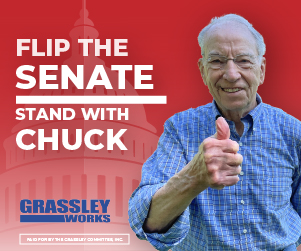The COVID-19 pandemic and its associated economic fallout have exposed America’s broken health care system once again. Countless patients are returning home from the hospital with no knowledge of the devastating medical bills awaiting them. And employers face new, COVID-induced health care costs at the same time their revenues have come under pressure.
To bring long-overdue financial certainty to health care consumers, we introduced the Healthcare PRICE Transparency Act in the Senate. This bill will finally bring real prices to health care by requiring hospitals and health insurers to publish their discounted cash prices and secret negotiated rates. No American should ever again face the anxiety of being blindfolded from prices, only to receive medical bills laden with confusing codes and outrageous charges in the mail weeks or months after treatment.
Under the status quo, where real prices are hidden, hospitals and insurers have carte blanche to raise prices on the backs of powerless and price-blind patients. This opaque dynamic is a significant reason why inflation-adjusted, per-capita health care costs have roughly doubled since 2000 to make up 18 percent of national GDP. Yet other areas of the economy with transparent prices, including LASIK eye surgery and cosmetic procedures, have seen flat or decreased prices over the same timeframe.
Our bill will allow Americans to shop for care as they do for nearly every other good and service in the economy. When consumers have access to prices upfront, hospitals and insurers must compete by distinguishing price and quality to attract patients. Those with ridiculous prices like $24,000 to treat a broken arm, $2,800 for stitches, or $600 for a bandage will lose their patients to providers that offer fair prices.
Patients, business owners, and local, state, and federal governments will then be empowered to identify the best quality care at the lowest price, greatly reducing runaway health care costs. Our fellow legislators should support this reform that is backed by 9 out of 10 Americans.
Hidden prices facilitate pervasive health care waste because providers and insurers can pass on redundant and unneeded costs to consumers with no economic consequences. According to a JAMA study last fall, waste accounts for 25 percent of the nearly $4 trillion the U.S. spends on health care each year. Such widespread waste could never exist in other economic sectors where providers are held accountable by informed consumers to cut costs.
No wonder there’s ample economic and anecdotal evidence that health care price transparency dramatically lowers health care costs. Economists Art Laffer and Larry Van Horn found that cash prices for care are, on average, 39 percent less than insurance negotiated rates. Some intrepid employers, fed up with perpetually rising coverage costs, have reduced their health care burden by 30 to 50 percent by steering their employees to price transparent providers. Sen. Braun knows the power of health care price transparency firsthand. In 2008, he cut his company’s health care costs and encouraged his employees to seek options through transparency by shopping around.
Americans, currently facing an uncertain economic climate, need these health care savings now more than ever. According to a recent study, one-third of small and medium-sized businesses expect to close for good. Tax revenues have plummeted, putting strains on government budgets nationwide. Cutting health care costs through price transparency will partially relieve one of the biggest cost burdens facing all Americans.
These health care savings will provide a significant economic stimulus at no cost to taxpayers. Patients will keep more of their paychecks to put toward good use, while employers will enjoy higher net earnings, which they can use to rehire the American workforce. Governments will devote a greater share of taxpayer dollars to services.
Hospital associations have fiercely lobbied against health care price transparency efforts to maintain their enormous profits. Yet this reform can help level the playing field between rural hospitals and their big-city competitors. When smaller hospitals can distinguish themselves based on price, they can attract new customers who otherwise bypass them for the name-brand hospital systems.
Health care reform, like health care itself, has been infected by unnecessary complexity for decades. The marvel of real prices can achieve policymakers’ long-standing goal of bending the health care cost curve. The associated economic stimulus will boost the national recovery and put more money in Americans’ wallets.
Chuck Grassley is chairman of the Senate Finance Committee. Mike Braun is a member of the Health, Education, Labor and Pensions Committee.



